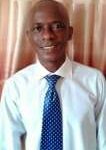My thesis examiner’s words made me rethink my decision to pursue a PhD

Years of primary and secondary education made me excited about continuing on to higher education. I started my bachelor’s degree at a university with high hopes, but these were soon dashed by physical and spiritual challenges. These challenges adversely impacted my academic record, leading me to change my major from physics to physics education. I had to spend an extra year to finish my bachelor’s degree and when I finished, I did so with a poor grade. I am not a genius but I had always been above average as far as my academic grades were concerned. But this turn of events made me really depressed, and I skipped another academic year while dealing with my poor mental health.
But I was eager to continue my education. So, I applied to many universities for master’s degree programs. After more than ten rejections, I got an admission letter from a Nigerian university to study science education.
Before enrolling for a master’s degree, I had published many academic papers in journals (I love writing academic papers)! I finished my master’s degree and thought of pursuing a PhD, but since my experiences at this university had not been positive, I decided to apply for admission to the Florida Institute of Technology, USA. I got through for their PhD program in science education, but could not accept their offer because my sponsor failed to release money for the program.
Undeterred, I applied for a PhD program again, but this time to universities in South Africa. I finally got into University of the Western Cape, South Africa, for a PhD in science education.
A doctoral program is a challenging one. For a while, I felt demotivated thinking about my previous academic accomplishments. But I also knew that getting a PhD degree would help alleviate the sense of failure I associated with my academic progress. Besides, I also loved the thought of becoming a university professor: these thoughts motivated me to put in my best despite all the challenges I faced.
I spent two years writing and completing my thesis for submission. However, I had many challenges between the period of submission and the approval of the thesis. The assigned internal examiners approved the thesis after thorough and rigorous review and editing. My thesis was then sent to three external examiners, and after six months, the reports started coming in. The first examiner sent in his report in January 2019, and his words made me rethink my decision to pursue a PhD in the first place! I revised the thesis and sent it back, but the examiner was still not satisfied. I developed a deep hatred in my heart against this examiner.
The remaining two examiners sent back their reports, which were positive but I could not forget the first report. I became restless and started seeing my pursuit of a PhD degree as an unnecessary waste of time. I thank God, that thanks to my supervisor and advisor, along with an internal examiner and the faculty-approved arbiter for my thesis, I was finally conferred the PhD degree in April 2020.
I have been a prolific writer before and during my PhD. I have had more than 70 publications in different international journals and books and have also presented papers in local and international conferences. Editage Insights and ResearchGate played a significant role in my PhD journey, providing me access to resources that I needed.
My PhD journey was not smooth but after spending five whole years on rigorous reading and research, I finally got my PhD. I am grateful that this is how my journey ended, with me having overcome the blocks that were in my way.




